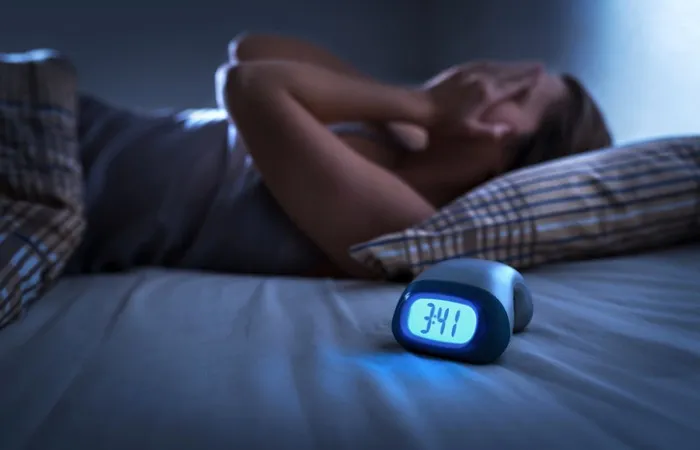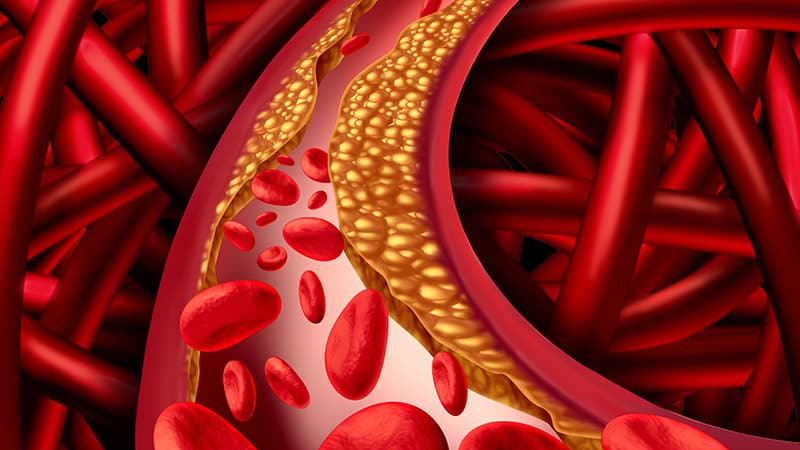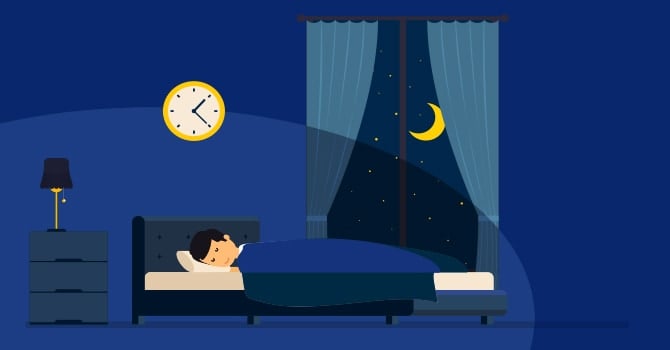Sleep is one of the most important cornerstones of health. Poor sleep patterns contribute to premature cellular aging in addition to wearing down our daily quality of life. Low mood, poor focus, food cravings and fatigue are only a few of the detrimental symptoms you might experience if your sleep is poor.
In addition, it turns out that poor sleep significantly drives dementia and heart disease risk.
In a recent 2021 study published in the journal Aging, researchers found that people who slept less than five hours per night had double the risk of developing dementia and were twice as likely to die from any cause when followed for 5 years.[1]
In another recent study looking at almost 8000 participants across Europe, researchers found that consistently sleeping six hours or less per night was associated with a 30% increase in dementia risk compared to 7 hours per sleep each night.[2]
A study done in 2022 on people in midlife found that having a combination of sleep problems ranging from trouble falling asleep, trouble staying asleep or sleeping less than six hours per night, can almost triple a person’s risk of developing heart disease.[3]
Clearly, getting good sleep not only protects you from serious health conditions but also significantly increases quality of life by increasing mental alertness, overall energy levels and even boosting metabolism to assist in weight loss and muscle building.
What I see in the clinic:
What I notice most in my clinic is how commonly patients get used to having poor sleep. Whether it is trouble falling asleep or trouble staying asleep, so many people have poor sleep patterns for so long that they just accept the fact that it is how they are going to have to live. And with good reason, they want to avoid over the counter and prescription sleep medications because they are habit forming and are associated with disease risk themselves. They walk around every day with brain fog, fatigue, low mood decreased immune function and sluggish metabolism.
What they don’t know is that there are many natural options available that can completely correct all aspects of poor sleep, without being habit forming. Using natural treatments, I help patients fall asleep easily and stay asleep throughout the night. Each treatment is tailored to their specific needs by targeting a variety of key aspects related to sleep. Balancing cortisol levels and neurotransmitters including GABA, serotonin, glutamate and norepinephrine are effective ways to enhance and regulate sleep.
The bottom line is that with the right approach, a natural treatment plan will improve sleep and result in more energy, improved immune function, sharper focus and memory and enhanced weight loss and metabolism.
Here are seven common symptoms you may experience if you are suffering from poor sleep on a regular basis:
- Fall asleep easily after sitting down: If you are sleeping poorly at night, you might find that your exhaustion catches up to you during the day, resulting in nodding off as soon as your body gets a chance to rest. Do you fall asleep easily shortly after sitting down?
- Feeling very drowsy after a meal: Digestion requires a lot of energy, and if your energy is low because of poor sleep, you may start to feel really tired and exhausted after you eat a meal, particularly a mid-day meal like lunch. How do you feel after your afternoon meal?
- Mood swings: Poor sleep wreaks havoc on brain chemistry and mood. Feeling impatient, moody, sad or anxious can all be a result of poor sleep. Have you taken stock of your moods recently?
- Sugar cravings: When you are tired, it is normal to crave foods that provide a boost of energy and sugar is one of the best sources of quick energy. Sugar cravings are a hallmark sign of poor sleep and of course in the end it only leaves you feeling more depleted and dysregulated. Do you notice a lot of sugar cravings?
- Dry mouth: If you wake up with a dry mouth it may mean you are doing a lot of mouth breathing or snoring at night. These patterns are typically associated with lower sleep quality. Do you need water throughout the night for dry mouth?
- Morning headache: Waking up in the morning with a headache can be a sure sign that your body did not properly rest throughout the night. If you have morning headaches on a regular basis, your sleep may be suffering.
- Snoring: Snoring can be a sign of sleep apnea which results in decreased oxygen levels reaching the brain at night while sleeping. And even if you don’t have apnea, frequent snoring can restrict optimal oxygen levels in the body and compromise sleep quality. Does your partner report that you snore loudly or frequently?
Do you have any of the symptoms above or think that you suffer from poor sleep? If so, call the office today 410-266-9110 to set up an appointment to explore a natural sleep protocol that will allow you to have the energy, vitality and metabolism you have always wanted and reduce your risk of serious diseases like dementia and heart disease.
[1] Robbins R, Quan SF, Weaver MD, Bormes G, Barger LK, Czeisler CA. Examining sleep deficiency and disturbance and their risk for incident dementia and all-cause mortality in older adults across 5 years in the United States. Aging (Albany NY). 2021 Feb 11;13(3):3254-3268. doi: 10.18632/aging.202591. Epub 2021 Feb 11. PMID: 33570509; PMCID: PMC7906211.
[2] Sabia S, Fayosse A, Dumurgier J, van Hees VT, Paquet C, Sommerlad A, Kivimäki M, Dugravot A, Singh-Manoux A. Association of sleep duration in middle and old age with incidence of dementia. Nat Commun. 2021 Apr 20;12(1):2289. doi: 10.1038/s41467-021-22354-2. PMID: 33879784; PMCID: PMC8058039.
[3] Lee S, Mu CX, Wallace ML, Andel R, Almeida DM, Buxton OM, Patel SR. Sleep health composites are associated with the risk of heart disease across sex and race. Sci Rep. 2022 Feb 7;12(1):2023. doi: 10.1038/s41598-022-05203-0. PMID: 35132087; PMCID: PMC8821698.







